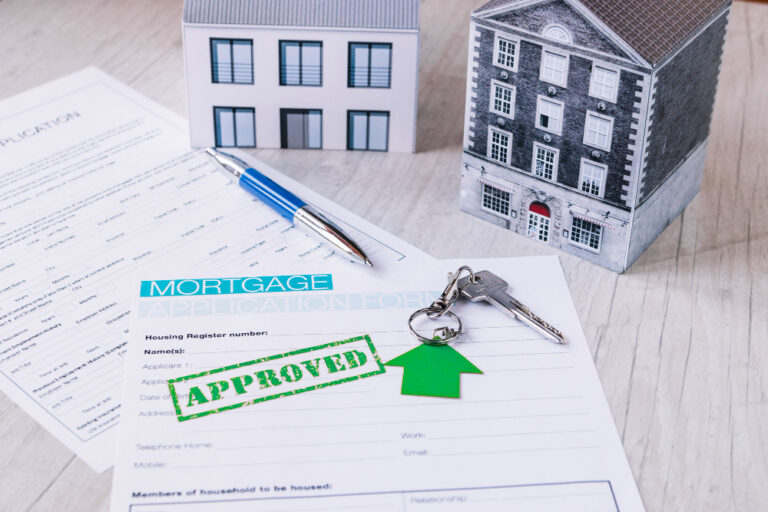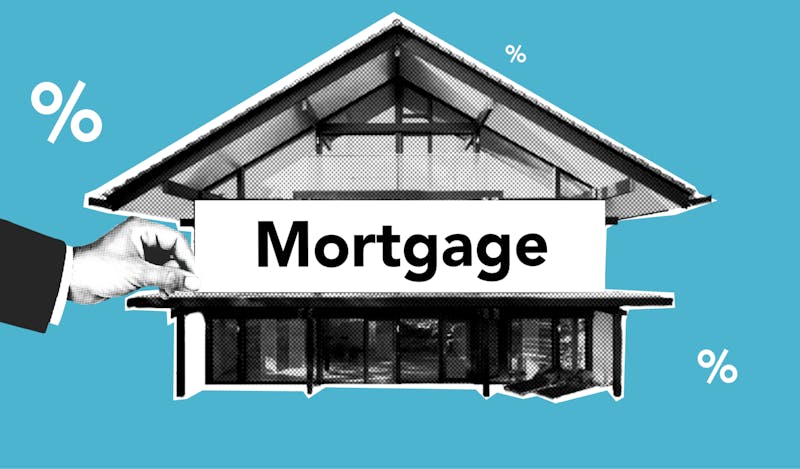Welcome back to our journey into the world of mortgages in Canada! In our previous blog post, we took the first steps towards understanding the basics of mortgages, paving the way for your entry into the realm of homeownership. Now, get ready to delve deeper into the fascinating array of mortgage options that Canada has to offer. Think of it as exploring a treasure trove of opportunities, each with its unique benefits and purposes, designed to match your specific needs. Whether you’re on the brink of buying your dream home, considering a cozy vacation getaway, or contemplating refinancing, this guide will serve as your trusty map to navigate the intricate landscape of mortgage types in Canada.
Residential Mortgages
Residential mortgages stand as a cornerstone in Canada’s housing market, representing the primary method for many Canadians seeking homeownership. Recent statistics indicate that over 70% of Canadians depend on financing to purchase their homes, a testament to the essential role these mortgages play in the country’s real estate dynamics. Typically featuring competitive interest rates and extended tenures, residential mortgages make monthly repayments more achievable for a vast majority. One distinguishing characteristic of these mortgages is the fixed-rate option. This ensures that the interest rate remains unwavering throughout the term. As a result, homeowners can breathe easy, secure in the knowledge that their monthly payments will remain steady, irrespective of any economic fluctuations or changing financial climates.
Commercial Mortgages
A commercial mortgage is a specialized loan product designed for businesses and investors to purchase, develop, or refinance commercial properties. Unlike residential mortgages, which are typically made to individual borrowers for homes, commercial mortgages are often secured by covering a diverse range of property types, including but not limited to:
Places of Worship: Secure financing for religious institutions and places of worship to support their community-driven initiatives.
Gas Station: Fuel the growth of your gas station business with our specialized mortgage solutions.
Nursing/Retirement Home: Invest in or upgrade nursing or retirement homes to ensure the well-being of elderly residents.
Industrial Mall: Expand your industrial business operations by acquiring or developing industrial mall spaces.
Commercial Retail Property: Finance retail spaces and shopping complexes to create thriving commercial hubs.
Office: Acquire office spaces or refinance existing ones to support your business operations.
Mixed-Use: Secure funding for properties that combine commercial and residential spaces in a single development.
Multi-Residential: Invest in multi-family apartment complexes to provide valuable housing options.
Rural and Agricultural Mortgages
Rural and agricultural mortgages are tailored loan solutions designed for individuals and businesses operating in less densely populated areas, emphasizing the unique financial demands of the farming and agribusiness sectors. These mortgages facilitate the purchase, development, or refinancing of rural lands, farms, and related agricultural facilities. Given the distinctive nature of farming, factors such as soil quality, type of crops grown, and water availability play a pivotal role in the mortgage terms.
Equipment Financing
An indispensable aspect of modern agriculture is the reliance on machinery and equipment. Recognizing this, many financial institutions offer specialized equipment financing options. These options ensure that farmers and agribusinesses can acquire, upgrade, or maintain essential machinery. Such dedicated financing plays a pivotal role in driving efficiencies, promoting sustainable practices, and ultimately, ensuring that rural and agricultural entities remain competitive in a swiftly changing market. These loans typically require a down payment of 20% or more. Successfully obtaining this form of financing demands specialized knowledge. Fortunately, we are experts in this niche. For guidance and more details, contact us — we specialize in assisting clients with this unique mortgage type.
Reverse Mortgages
Designed primarily for senior Canadians, reverse mortgages present a distinctive opportunity. Homeowners can access a portion of their home’s equity in cash, eliminating the need to relocate or handle monthly repayments. The amount is eventually settled, typically from the sale proceeds when the homeowner chooses to sell or upon their passing. It’s worth noting that only a few lenders offer this specialized mortgage type, and we are proud to be among the experts in this field. For more details or to explore this mortgage option further, please contact us.
Construction Mortgages
A construction mortgage is a boon for those passionate about crafting a home suited to their unique preferences. Instead of a lump sum amount, the funds are released in stages, corresponding with the construction’s progress, a process commonly referred to as “Draws.” This approach guarantees financial discipline and optimizes the construction journey. Notably, if the land on which the house is being built is already paid off, its value can be utilized as the down payment, further easing the financial requirements. Once the construction reaches completion, the mortgage can typically be transitioned into a standard residential mortgage.
Vacation and Second Home Mortgages
The allure of a vacation home, nestled amidst Canada’s scenic landscapes, is undeniable. This specialized mortgage type facilitates the acquisition of second homes or vacation properties. While the approval criteria might be stricter given the nature of the investment, it’s noteworthy that the down payment for a second home doesn’t necessarily have to be substantial. In fact, it can be as low as 5 to 10 percent. For those who can navigate these requirements, a serene retreat in the heart of Canada’s beauty awaits.
Home Equity Line of Credit (HELOC)
A Home Equity Line of Credit (HELOC) can be visualized as a financial reservoir. At its core, it is a credit line that leverages the equity built up in your home. Before delving deeper into the mechanics of a HELOC, it’s crucial to understand “equity.” In simple terms, home equity is the current market value of your home minus any outstanding mortgage balance. It represents the portion of the home you truly own, as opposed to what you still owe the bank.
Let’s consider an example. If your home is currently worth $300,000 and you have a remaining mortgage balance of $150,000, then your home equity is $150,000.
With a HELOC, homeowners can typically access up to 80% of their home’s market value, less any outstanding mortgage balance. So, in the above example, 80% of $300,000 is $240,000. Once you subtract the mortgage balance of $150,000, you can potentially access a HELOC of up to $90,000.
A Home Equity Line of Credit (HELOC) offers homeowners the flexibility to borrow funds as and when required, making it an invaluable tool for unexpected expenses or extensive home renovation projects. What sets HELOC apart is its revolving credit feature: homeowners can borrow, repay, and re-borrow as necessary. This fluidity provides individuals with enhanced financial adaptability, empowering them to adeptly navigate their financial landscape in response to evolving needs.
Interim Financing
The world of real estate is often about timing. Interim financing, commonly known as bridge loans, provides a financial bridge for homeowners caught between the sale of their current home and the purchase of a new one. This short-term financing ensures that homeowners don’t miss out on a potential dream home due to timing mismatches.
Renovations and Home Improvement Mortgages
Your home is more than just a structure; it’s a reflection of your tastes, and understandably, those tastes can evolve over time. In Canada, the “purchase plus improvement” program offers a unique advantage to homebuyers. This program permits buyers to not only secure financing for the purchase of their homes but also acquire additional funds from lenders for significant improvements. Whether it’s adding a new room, overhauling the entire interior design, or making essential repairs, the program ensures that homeowners have the resources to shape their homes in line with their visions. Remarkably, this can be done with as low as a 5% down payment, making it accessible to a broader range of potential homeowners. These mortgages, therefore, provide both the foundation for homeownership and the financial impetus for those dreaming of tailoring their new homes to their evolving preferences.
Convertible Mortgages
A convertible mortgage offers the flexibility to change the type of mortgage during its term. For instance, you can start with a variable rate and then switch to a fixed rate. This type of mortgage is beneficial for those who want to take advantage of current low rates but anticipate rates might rise in the future.
Lender Types
Private mortgages are defined more by the nature of the lender rather than the borrower or the type of property being financed. Whether residential, commercial, or another type of property, the lending landscape is diverse. Most of the mortgage types listed above may be financed by three different types of lenders, which are as follows:
- Prime Lenders: Often referred to as “A lenders”, these are the mainstream banks and financial institutions that most people are familiar with. They usually offer the lowest interest rates and favourable terms, but they have stringent criteria for approval. Borrowers need to have a strong credit history, consistent income, and typically, a considerable down payment to qualify for loans from prime lenders.
- Alternate Lenders (B Lenders): These are institutional lenders who operate in spaces where traditional banks might not. They are willing to work with borrowers who might have minor credit issues or non-traditional income streams. While they might offer slightly higher interest rates compared to prime lenders, they fill a crucial gap in the lending market for those who don’t quite fit the mould for mainstream financing but still have relatively stable finances.
- Private Lenders: These lenders offer the most flexibility, catering to a diverse range of borrowers, including those with significant credit challenges, fluctuating incomes, or unique property types. Since they are not bound by the regulations that govern traditional banks and financial institutions, they can make decisions based on property values and individual borrower circumstances. However, this flexibility often comes at a cost; interest rates can be substantially higher, terms can be shorter, and a larger down payment might be required.
In conclusion, the diverse mortgage landscape in Canada offers tailored options for various needs. From stable residential mortgages to flexible private mortgages, specialized solutions like reverse mortgages, construction loans, and vacation property mortgages, each choice serves a unique purpose. Bridging solutions, debt consolidation, and renovation mortgages provide practical support, while portable and convertible mortgages offer added flexibility. Understanding these options empowers prospective homeowners to make informed choices aligned with their financial goals and lifestyles.



